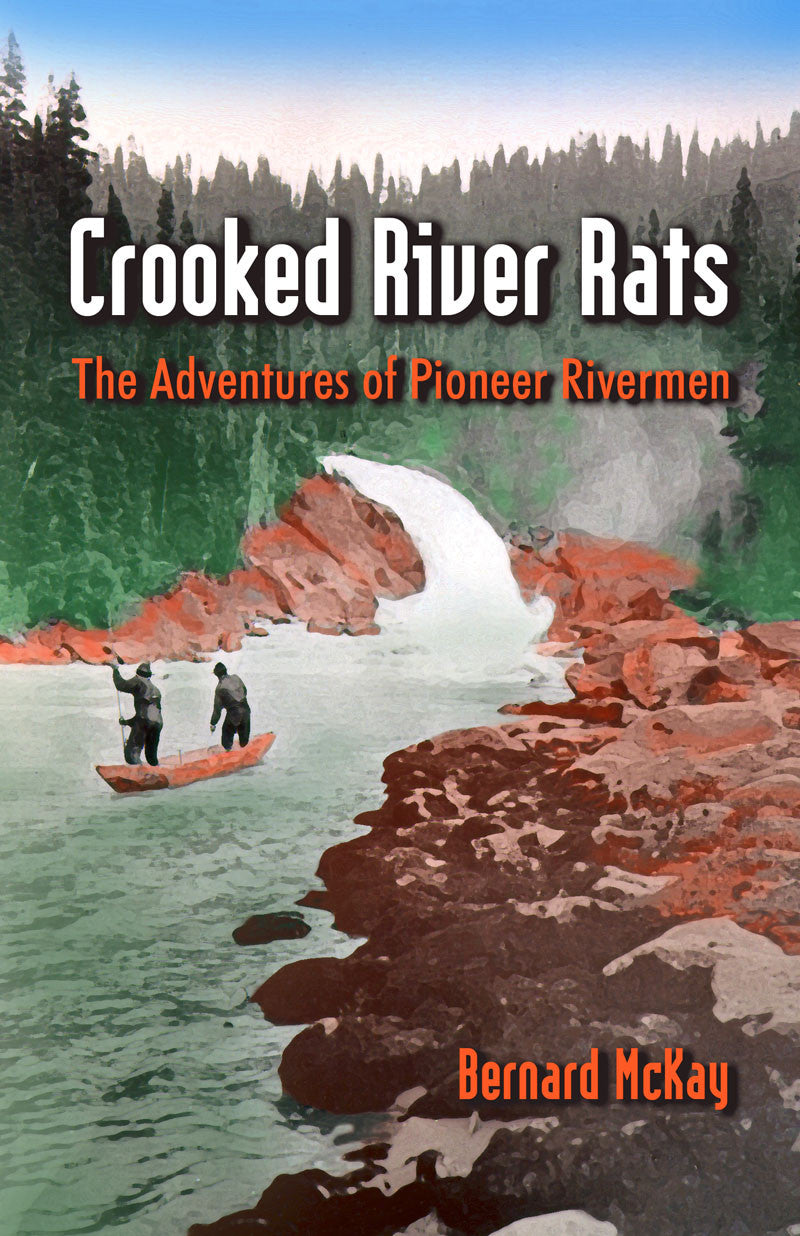

Crooked River Rats: the adventures of pioneer rivermen
Details
By: McKay, Bernard, Liddle, Wendy
ISBN: 978-0-88839-451-4
Binding: Trade Paper
Size: 8.5" X 5.5"
Pages: 176
Photos: 33
Illustrations: 32
Publication Date: 2000
Description
PR Highlights: The adventures of pioneering river men & women.
PHOTO Highlights: HistoricaI b/w & illustrated by Wendy Liddle.
Description: A history of men who worked the rivers in the Rocky Mountain Trench.
Drift back in history to time when the rivermen still plied their trade through the northern rivers of BC. Crooked River Rats tells the tales of men and women who traveled the river highways living and working in the wilderness. Generations of trappers, hunters, big game guides and prospectors depended on the riverboat for their supplies. Using brute strength and strong will, these river pioneers endured much hardship as they opened up the northern bush. These are their stories. Today as motorists travel the John Hart Highway running north from Prince George they will see the Crooked River appear on the west side of the road. It is a very slow-running stream that is for the most part shallow and often very narrow. Yes, the river is unimposing and quiet now, but only fifty years ago this river was the only highway to the north and, as such, teemed with activity. All the freight to the north was carried along the Crooked, Pack, Parsnip, Finlay and Peace Rivers by long riverboat. The decades of the 1920s, 30s, and 40s were the heyday of the rivermen. These were the years when the price of wild fur was high. Roads had penetrated the headwaters of the Crooked and Pack Rivers by the 50s, but the country northward still was serviced mainly by riverboats until 1969 when Williston Lake was formed by hydro development, thereby cutting off the rivers.
The communities and trading posts of McLeod Lake, Finlay Forks, Fort Graham and Fort Ware all depended on the river highways for their existence. Generations of trappers, hunters and big game guides, as well as independent prospectors depended on the boats for their supplies. These provisions would, in many cases, have to last and entire winter with freight being almost impossible to move during the November to April freeze up.
The book begins with events that took place before the advent of motorized power, when river travel required simple, brute strength. I then continued with stories that took place through the 1920s and 30s when outboard engines arrived on the scene. Trappers and the trapping industry are what opened up all of Canada and this book would be remiss if these enterprising men were not given their due. I have included discussions on what life was like for the men and women who braved the rivers and the hardships of northern wilderness life. To this end, I have included excerpts from letters and diaries of the day that described the hardships these people faced, and accepted as almost routine, in their daily lives. These excerpts were copied as the original authors wrote them so none of their flavor would be lost. There are also true-life stories about gold seekers, big game guides and the missionaries who lived and thrived throughout the 40's, 50s and 60s. The last chapter of this book describes the enormous impact the Peace River Dam, completed in 1968, had on the area and its people.
The men and women that lived and worked in this Rocky Mountain Trench area and particularly the rivermen themselves were a hardy lot. They were individualistic and resourceful in emergencies and they just loved to be living and working in the wilderness. These are their stories . . .